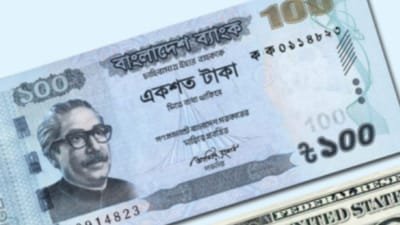Bangladesh has taken the initiative to remove the founding leader of the country Sheikh Mujibur Rahman from its currency notes. The move comes months after the ouster of Prime Minister Sheikh Hasina, Rahman’s daughter, who fled the country following a student-led uprising in July.
Bangladesh Bank confirmed that it is printing new bank notes of Rs 20, Rs 100, Rs 500 and Rs 1,000 without Rahman’s image. Instead, the notes will feature graffiti related to the July uprising, Bengali traditions, religious structures and protests that led to the fall of Hasina’s government.
The Finance Ministry has confirmed plans to redesign all currency notes, with four denominations to be updated first and others to follow in a phased manner.
“The new notes will not include the image of ‘Bangabandhu’ Sheikh Mujibur Rahman,” said Bangladesh Bank Executive Director Husnera Shikha, adding that they are expected to enter circulation in six months.
The removal of the image of Rahman, who is widely revered as the “Father of the Nation”, is part of a broader effort to reshape the country’s identity under the interim administration led by Nobel laureate Muhammad Yunus.
Rahman’s legacy has faced increasing criticism, with statues and murals of him targeted during protests.
Hasina has accused the Yunus administration of failing to protect minority communities, including Hindus. Her comments have been condemned as “hate speech” by Bangladesh’s International Crimes Tribunal.
Political instability in Bangladesh has increased tensions with India, particularly over the protection of the Hindu minority. After Hasina’s resignation, attacks on Hindus and their places of worship have increased.
The arrest of ISKCON priest Chinmoy Krishna Das in October added to the concern. Das, known for advocating for minority rights, was detained at Dhaka airport on charges of disrespecting the Bangladeshi flag during a rally.

